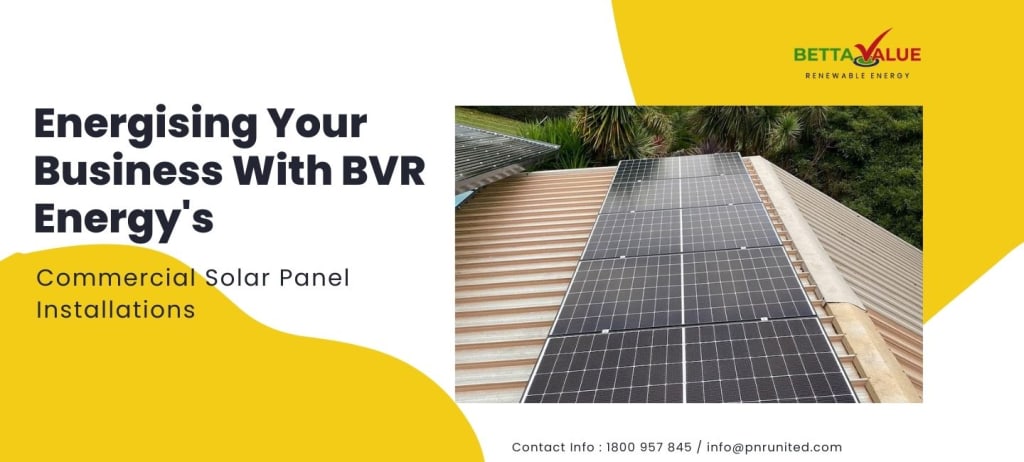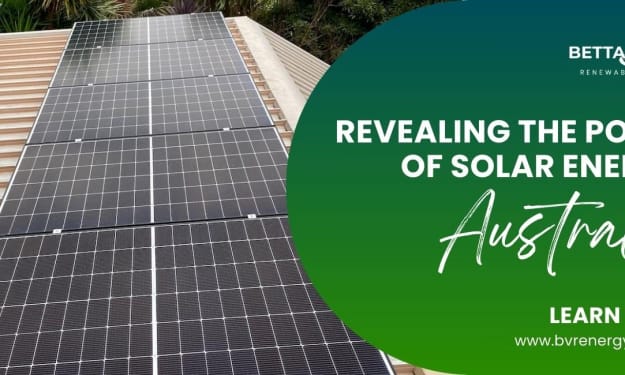Solar Panel Installations: A Comprehensive Guide to Sustainable Energy
Solar Panel Installations

As the world shifts towards cleaner energy sources, solar panel installations have become increasingly popular for both residential and commercial properties. Solar energy is not only sustainable and environmentally friendly but also offers substantial cost savings over time. This article explores the benefits of solar panels, the installation process, types of solar panels available, and tips for choosing the best solar energy provider.
The Growing Importance of Solar Energy
The global push towards renewable energy is more critical than ever. Solar power, harnessed from the sun's rays, is a clean, abundant, and renewable energy source that helps reduce our reliance on fossil fuels. By converting sunlight into electricity, solar panels provide a sustainable solution to meet the world's increasing energy demands while mitigating the effects of climate change.
Benefits of Installing Solar Panels
1. Significant Cost Savings
One of the most compelling reasons to install solar panels is the potential for significant cost savings. After the initial investment, the energy produced by the panels is virtually free, reducing electricity bills and providing a return on investment over time.
2. Environmental Impact
Solar energy is a green alternative to traditional energy sources. It produces no greenhouse gas emissions during operation, which helps combat climate change and reduces air pollution. By switching to solar power, you contribute to a cleaner and healthier environment.
3. Energy Independence
With solar panels, you can achieve a degree of energy independence. This means less reliance on the grid, protection from energy price fluctuations, and assurance of power supply during outages.
4. Increased Property Value
Properties with solar panel installations often see an increase in value. Potential buyers are attracted to the energy savings and the environmental benefits, making solar-equipped properties more desirable.
The Solar Panel Installation Process
1. Initial Consultation and Site Assessment
The first step in the solar panel installation process is an initial consultation and site assessment. A solar energy provider will evaluate your energy needs, roof orientation, shading, and structural integrity to determine the best solar solution for your property.
2. Custom System Design
Based on the site assessment, a custom solar panel system is designed to maximize energy production and efficiency. This includes selecting the appropriate type and number of panels, as well as determining the optimal placement.
3. Permitting and Approvals
Installing solar panels typically requires permits and approvals from local authorities and utility companies. A reputable solar provider will handle all the necessary paperwork, ensuring compliance with regulations and standards.
4. Professional Installation
Once the permits are secured, the installation process begins. Professional technicians install the panels on your roof or property, ensuring they are securely mounted and correctly aligned for maximum sun exposure.
5. System Activation and Monitoring
After installation, the solar system is connected to the grid and activated. Most providers offer monitoring services to track the system's performance, ensuring it operates efficiently and effectively.
Types of Solar Panels
1. Monocrystalline Solar Panels
Monocrystalline solar panels are known for their high efficiency and sleek appearance. They are made from a single crystal structure, which allows for better energy conversion. These panels are ideal for properties with limited roof space.
2. Polycrystalline Solar Panels
Polycrystalline solar panels are a cost-effective option with slightly lower efficiency compared to monocrystalline panels. They are made from multiple silicon crystals and are a popular choice for residential installations.
3. Thin-Film Solar Panels
Thin-film solar panels are lightweight and flexible, making them suitable for unconventional surfaces and applications. While they generally have lower efficiency compared to crystalline panels, they offer versatility and ease of installation.
Choosing the Right Solar Energy Provider
Selecting the right solar energy provider is crucial for a successful installation. Here are some tips to help you make an informed decision:
1. Experience and Expertise
Look for a provider with a proven track record and extensive experience in solar panel installations. An experienced provider will have the knowledge and skills to design and install a system that meets your specific needs.
2. Quality of Products
Ensure the provider uses high-quality solar panels and components from reputable manufacturers. Quality products are essential for the longevity and efficiency of your solar system.
3. Customer Service
Choose a provider known for excellent customer service. From the initial consultation to post-installation support, a good provider will prioritize your needs and ensure a smooth and hassle-free experience.
4. Comprehensive Warranty
A comprehensive warranty is crucial for protecting your investment. Look for providers that offer substantial warranties on both the panels and the installation work.
5. Competitive Pricing
While price should not be the only factor, it's important to find a provider that offers competitive pricing without compromising on quality. Request multiple quotes and compare them to find the best value for your investment.
Government Incentives and Rebates
Many governments offer incentives and rebates to encourage the adoption of solar energy. These incentives can significantly reduce the initial cost of installation, making solar energy more accessible and affordable. Check with your local authorities and your solar provider to explore available options and maximize your savings.
The Future of Solar Energy
The future of solar energy is bright, with ongoing advancements in technology and increasing awareness of environmental issues. Innovations in solar panel efficiency, energy storage solutions, and smart grid technology are making solar energy more viable and attractive for widespread adoption. As the world continues to prioritize sustainability, solar energy will play a crucial role in shaping a greener future.
Conclusion
Investing in solar panel installations is a smart and sustainable choice for both residential and commercial properties. With benefits ranging from significant cost savings and environmental impact to increased property value and energy independence, solar energy is a viable solution for today’s energy needs. By choosing a reputable provider and leveraging government incentives, you can harness the power of the sun and contribute to a cleaner, greener planet. Start your journey towards sustainable energy today with a solar panel installation.
About the Creator
Enjoyed the story? Support the Creator.
Subscribe for free to receive all their stories in your feed. You could also pledge your support or give them a one-off tip, letting them know you appreciate their work.





Comments
There are no comments for this story
Be the first to respond and start the conversation.